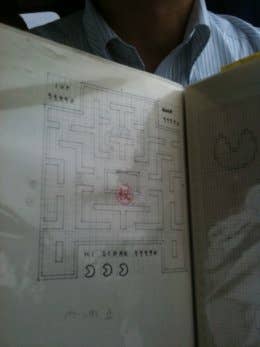Pac-Man's Toru Iwatani
The former Tecmo man explains his philosophy on how games should be made
This year's Festival of Games in the Netherlands had a special guest speaker - professor Toru Iwatani, the man behind the creation of Pac-Man thirty years ago, and now working in Japan in education.
While he was there, we caught up with him to ask him how he thought the industry had changed over the years, and where it was all heading - plus if Japan can ever regain cultural leadership of the industry.
30 years ago, when Pac-Man was released for the first time, there were only arcade games - no games that people were playing at home. In 1983 you had the Famicom, and of course the PC was coming to market, so you had a shift from arcades towards people using computers at home. When you go to an arcade you have to put in a coin, and when that's done you go home.
By having the computer at home it meant that people could play for longer - and that's when the RPG genre was introduced, with games that could be played for a really long time. So what you got was the action game in the arcades, shifting towards longer games at home, and that's one way as far as I'm concerned that the industry has changed.
There's also been a great change in the way that games look and feel - both the software and the hardware. Games had to be playable for longer, but the graphics had to be able to support that, and then you have this game-movie thing - but then the development costs rocket sky-high.

In order to save on some of these costs, you have to then make follow-ups to leverage on the previous games. When that happens, you're reducing the possibility of developing new concepts - and nowadays what you see is that there are only a few games that innovate. That the reality that I see around me today.
But we're now in an important phase when things are going to change, so we need to consider which direction the industry needs to go in - and I see a possible solution to the problem.
In Japan, when we use the word "network" it refers to online - to everything we can download from servers, including downloading games to PC or consoles as well. So if networked players see things that could be improved in a game, they can contact the company that makes it, which can then in turn react to improve it. That means that the players have a role - the developer interacts with the players to take it to a higher level.
That's an opportunity that I think is really great, because it would allow the developers to listen to what the players are saying, how they're experiencing the game. That's where I see the real challenge today - in creating an environment where people can continue to enjoy games on an increasing level.
I don't think that when people share a game that it needs to be something different to how it used to be - just another way to share what you have with other people. Basically you're interacting with your fellow players, and the developer.








